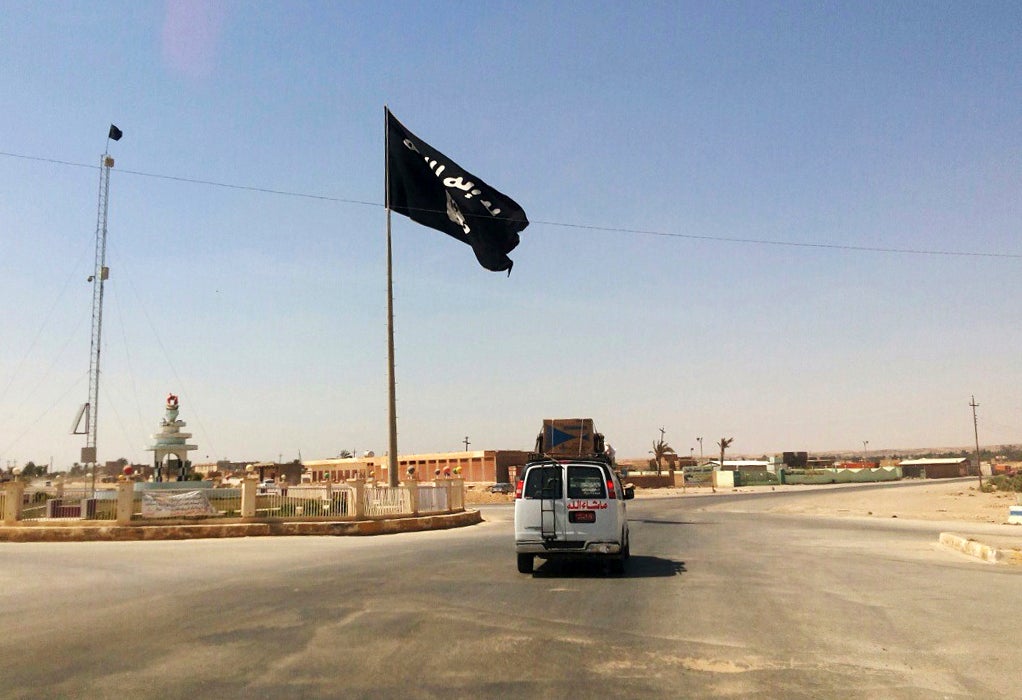Ministers meet in Morocco to discuss ongoing threat from IS
Members of the global coalition fighting the Islamic State group are meeting in Morocco to discuss the campaign

Your support helps us to tell the story
From reproductive rights to climate change to Big Tech, The Independent is on the ground when the story is developing. Whether it's investigating the financials of Elon Musk's pro-Trump PAC or producing our latest documentary, 'The A Word', which shines a light on the American women fighting for reproductive rights, we know how important it is to parse out the facts from the messaging.
At such a critical moment in US history, we need reporters on the ground. Your donation allows us to keep sending journalists to speak to both sides of the story.
The Independent is trusted by Americans across the entire political spectrum. And unlike many other quality news outlets, we choose not to lock Americans out of our reporting and analysis with paywalls. We believe quality journalism should be available to everyone, paid for by those who can afford it.
Your support makes all the difference.Members of the global coalition fighting the Islamic State group gathered in Morocco on Wednesday to discuss the campaign, a reminder of the persistent threat from the extremist group despite the overwhelming preoccupation with Russia’s war on Ukraine.
U.S. Under Secretary for Political Affairs Victoria Nuland co-chaired with Moroccan Foreign Minister Nasser Bourita the annual meeting of senior officials from the 8-year-old, 83-member bloc. The group aims to reaffirm their shared determination to continue fighting IS.
Nuland, the third highest-ranking U.S. diplomat, replaced Secretary of State Antony Blinken who tested positive for COVID-19.
IS at the height of its power controlled more than 40,000 square miles (103,600 square kilometers) stretching from Syria to Iraq and ruled over 8 million people. It lost its last patch of territory in eastern Syria in March 2019 following a years-long global fight against the group. Since that time, it has largely gone underground and waged a low-level insurgency, including roadside bombings, assassinations and hit-and-run attacks mostly targeting security forces in Iraq and Syria.
In recent months, the group has exploited economic collapse, lack of governance and growing ethnic tensions in the impoverished region to reverse counter-IS gains. Its attacks in the region included a major assault earlier this year to seize a prison in northeast Syria holding at least 3,000 IS detainees.
The group has claimed several attacks in Israel recently, and an Islamic State affiliate in Egypt on Sunday claimed an attack that targeted a water pumping station east of the Suez Canal, killing at least 11 soldiers. In Afghanistan, IS militants have stepped up attacks on the country’s new rulers, the Taliban, as well as religious and ethnic minorities.
This year’s meeting is taking place to the backdrop of significant other international priorities, including the devastating war in Ukraine, fallout from the coronavirus pandemic and stepping up the fight against climate change.
Moroccan media report that some 80 countries would be represented at the gathering Monday. Delegates will also discuss ways to prevent a resurgence in Iraq and Syria by stabilizing liberated areas and pursuing sustainable solutions for IS detainees and their family members, as well as countering IS networks on the African continent and elsewhere.
The Moroccan government said it hopes the meeting will result in increased international commitment and cooperation in the fight against IS, with a particular focus on Africa and the growing terrorist threat in the Middle East and other countries.
Numerous Moroccans have traveled to Syria, Iraq and elsewhere to join extremist groups in recent years. Morocco has also experienced multiple attacks itself. Five suicide attacks in Casablanca in 2003 killed 33 people. In 2011, an explosion destroyed a cafe in Marrakesh, killing 17 people, most of them foreign tourists.